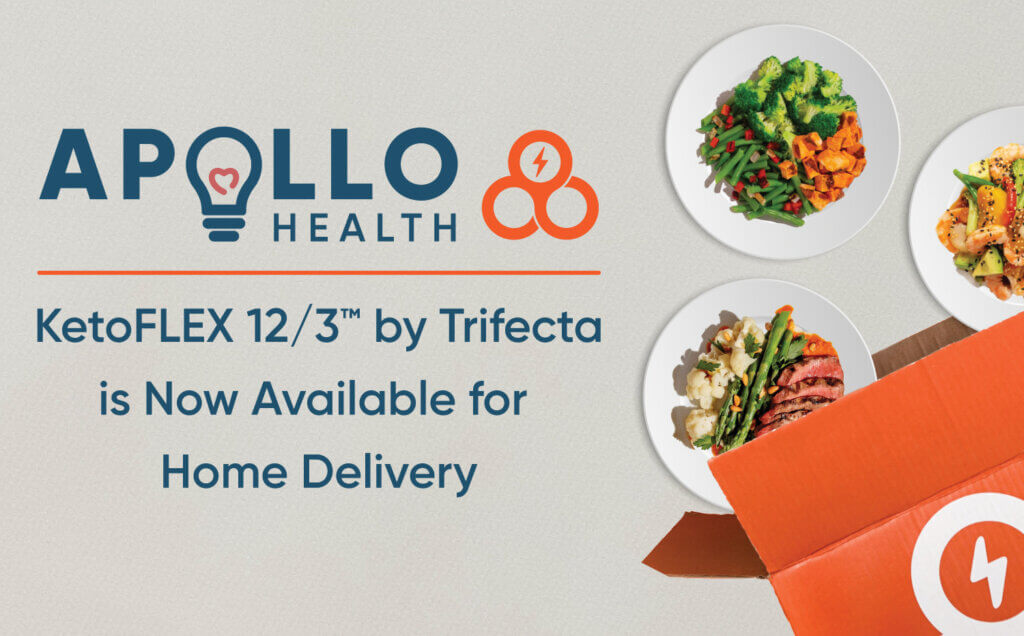July 8, 2020
Cognitive Restoration Through Fasting

Fasting is a critical component of the KetoFLEX 12/3 diet. In fact, fasting is one of the three major components of the KetoFLEX 12/3 lifestyle and serves as the foundation (bottom level) of the KetoFLEX 12/3 Brain Food Pyramid that will be introduced in The End of Alzheimer’s Program, available August 18th. Yes, it is that important.
The goal is to work up to a fast that begins at least three hours before bedtime and lasts for a total of at least twelve hours daily, between the end of dinner and the beginning of “breakfast.” (Breakfast is in quotes as you will soon learn that you can “break your fast” any time of day.) ApoE4 carriers, who are weight stable, may try to extend their fasting period even longer— to sixteen hours or more. It is important to include the period of sleep as a part of your fast for several reasons. First, sleep naturally provides a good opportunity to increase the total amount of hours of fasting time. As the day winds down, your body requires less food to create energy, and (if metabolically healthy) it typically transitions to a fat-burning state. In addition, while you sleep, your body will undergo a crucial process of detoxification and restoration rather than digestion.
Indeed, extended fasting leads to an evolutionary healing process called autophagy, which occurs when glycogen stores are depleted. During this adaptive period of cellular “housekeeping,” your body recycles worn-out cellular debris to make new cellular parts and cleans out damaged cells to recreate newer ones reducing inflammation, upregulating mitochondria, and even providing a longevity benefit. Maintaining youthful cellular components is vitally important, considering that aging is one of the greatest risk factors for Alzheimer’s disease.
Fasting offers a wide array of other positive health benefits, such as reducing the risk of cardiovascular disease, cancer, and autoimmune conditions. Most importantly, fasting restores insulin sensitivity and promotes ketone production that can be used to help fuel our brains. Furthermore, many people indicate experiencing a major enhancement in their cognition after they reach their fasting goal and start burning their body fat for energy. Fasting can be extraordinarily liberating because, rather than depending on constant snacking or meals, you can freely derive energy from your body’s natural supply of fuel.
However, fasting is particularly challenging to initiate for those with insulin resistance. If you are attempting to extend your fast and struggling, consider adding a small amount of MCT or coconut oil to your morning tea or coffee until you can restore insulin sensitivity. These fats serve as ketone supplements, which can create energy, enabling you to fast for the prescribed time. (Those with elevated lipids may wish to use ketone salts or esters instead.) While exogenous ketone supplements technically deter autophagy, they can help provide temporary brain fuel during the weeks or months that it takes to heal from insulin resistance.
While the KetoFLEX 12/3 lifestyle is not necessarily a weight-loss tool, fasting is still beneficial for those hoping to lose weight. If you discover that you are losing too much, you may need to temporarily shorten your fasting period. Still, try to fast for at least three hours before bedtime, but feel free to eat in the morning if you feel hungry. Additionally, increasing your total amount of calories by adding healthy fats will naturally help you gain weight, get into ketosis, and extend your fast.
Be cognizant that transitional mild to moderate side effects may occur with prolonged fasting. Some people report symptoms, referred to the keto flu. Thankfully, not everyone is affected, and the severity of the symptoms is contingent on the person. Common symptoms include headaches, difficulty focusing, fatigue, nausea, bad breath, leg cramps, increased heart rate, lightheadedness from hypotension, and diminished physical performance.
Because dehydration (and the corresponding mineral loss) is the source of these negative side effects, drink water and stay hydrated while adopting the KetoFLEX 12/3 lifestyle. Be sure to supplement your diet with sea salt to restore lost minerals. These combined actions will typically address and prevent symptoms of keto flu.
For those of you who need a morning cup of joe to get going, feel free. Coffee offers cognitive benefits in moderation. Just be sure to abstain from any cream (or substitutes) or sugar so that you do not break your fast and impede autophagy. If necessary, very small amounts of pure stevia or monk fruit can be used as a sweetener. Before breaking your fast, we suggest a detoxifying drink, such as room-temperature water with a squeeze of fresh lemon or ginger. You can also drink tea, such as milk thistle, lemongrass, ginger, or dandelion.
You can adjust the fasting period in whatever way works best for you. Some people have early or light dinners, while others even opt to skip dinner entirely. Alternatively, you can skip breakfast. We suggest that you experiment to identify what works for you based on your home, work, social demands, and unique circadian rhythm.
Upon implementing the KetoFLEX 12/3 lifestyle, many naturally move towards eating fewer meals— typically two meals, or even one, per day. As long as you maintain a healthy weight and feel strong, you have successfully transitioned to the KetoFLEX 12/3 fasting goal. Soon, fasting will become a regular lifestyle choice that will offer indescribable freedom, increased cognitive clarity, and markedly improved energy.
If you are interested in learning more, Apollo Health subscribers can find additional information about fasting and the KetoFLEX 12/3 lifestyle.





